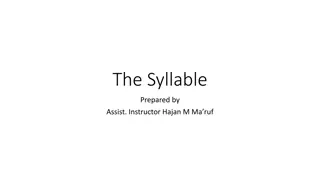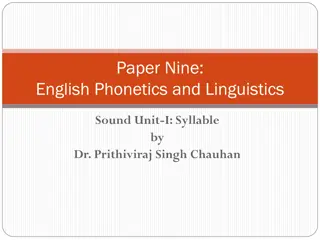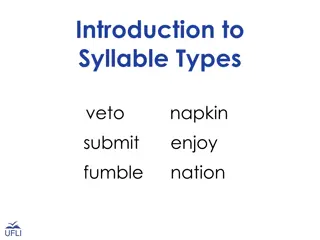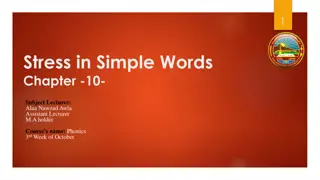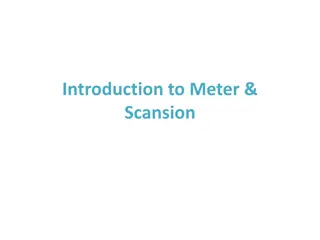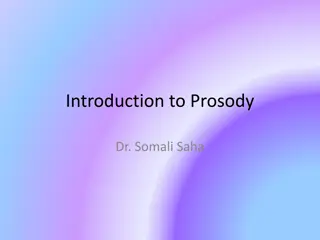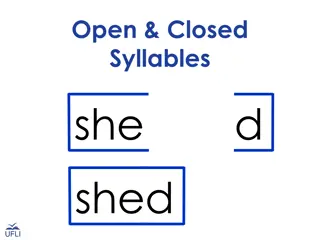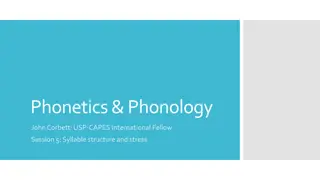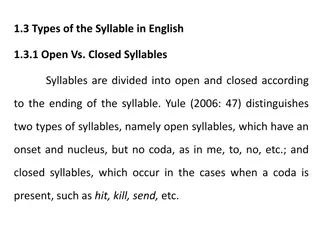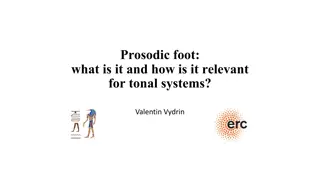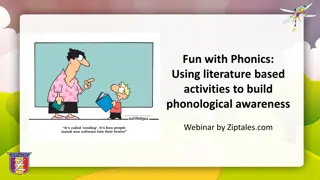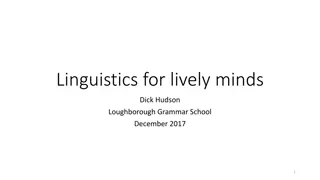
Understanding Heteronyms: Words with Multiple Meanings
Explore the concept of heteronyms, words that are spelled the same but have different pronunciations and meanings. Discover examples and learn how these words function in different grammatical roles.
Download Presentation

Please find below an Image/Link to download the presentation.
The content on the website is provided AS IS for your information and personal use only. It may not be sold, licensed, or shared on other websites without obtaining consent from the author. If you encounter any issues during the download, it is possible that the publisher has removed the file from their server.
You are allowed to download the files provided on this website for personal or commercial use, subject to the condition that they are used lawfully. All files are the property of their respective owners.
The content on the website is provided AS IS for your information and personal use only. It may not be sold, licensed, or shared on other websites without obtaining consent from the author.
E N D
Presentation Transcript
Contrary to what you believe, I am contrary sometimes. Does anybody want to read the above sentence aloud?
Heteronyms What is a heteronym? A pair (or group) of heteronyms are words that have the same spelling (they are homographs) but different pronunciation (they are heterophones) and also different meanings.
It's much easier to grasp this idea with a few examples: Excuse: Please excuse me while I think of an excuse. Polish: Tell the Polish cleaners to polish the floor. Minute: The button was so minute that it was a minute before I found it. Wind: Hopefully the wind will be strong enough to wind the windmill. Record: It's the referee's job to record the new world record.
Grammatical Function Heteronyms Sometimes words function as more than one part of speech. If you dust the bedroom, you are removing the dust. Both are pronounced the same; however, the first dust is a verb and the second dust is a noun. 1stdust is a verb. 2nddust is a noun.
When the two words differ in sound, they form a pair of heteronyms. In the list that follows, all the heteronyms are the result of a word taking on two grammatical roles. An example sentence has been given for each heteronym. Let s read them out loud to spot the pronunciation differences.
Abuse- When people abuse drugs this is called drug abuse. Contest- To contest the issue they held a contest. Convert- John became a convert after deciding to convert to Judaism. Duplicate- If I need a duplicate I can use the Xerox to duplicate the letter. Graduate- When I graduate I will become a graduate. Insult- You can insult someone by shouting an insult.
Permit- The guard will permit you to pass if you show a valid permit. Produce- These factories produce the produce that is shipped abroad. Rebel- A rebel is one who has decided to rebel. Transplant- The doctor won't transplant a heart if the transplant is damaged. Use- Please put my typewriter to use because I never use it.
Do you notice anything about those pairs? In every case one of the heteronyms is a noun and the other is a verb. In most cases, the difference in pronunciation is simply a matter of stress or emphasis. In fact, a deeper pattern emerges if you study which of the syllables are stressed in these sentences. Look at the two-syllable words and you will see that in almost every case the noun is stressed on the first syllable, and the verb is stressed on the second (e.g. noun: CON-test; verb: con- TEST).
Two of the previous examples, abuse and use, do not change their stress pattern. The words differ by the pronunciation of the s. In one form (the verb) it is voiced like zzz, and in the other (the noun) it is voiceless like sss.
This sort of heteronym is not confined to noun-and- verb pairs. Here is a list of heteronyms in which one form is an adjective. Absent- The boy was absent because he chose to absent from school Alternate- They alternate between using the alternate machine and the main one. Aged- My grandfather is aged ninety-two so he is quite aged. Crooked- I crooked my neck to see the man with the crooked stick.
Desolate- Extreme weather may desolate a place making it a desolate place. Learned- Everything I know I learned from that learned old man. Perfect- The overture took years to perfect, but eventually it was perfect. Separate- I want you to separate the cards into two separate piles.
Lets review. Nouns are usually stressed in the first syllable. Verbs are usually stressed in the second syllable. These factories proDUCE the PROduce that is shipped abroad. The doctor won't transPLANT a heart if the TRANSplant is damaged.
When people aBUSE drugs this is called drug Abuse. You can inSULT someone by shouting an INsult. The guard will perMIT you to pass if you show a valid PERmit. Now let s try an activity together that will get us moving!!!!!
Step forward if emphasis is on the first syllable. Step backwards if emphasis is on the second syllable. I ll do the first two. Please excuse me while I think of a reason. Your excuse is not good enough.
Ill help you with two. Tell the Polish cleaners to wax the floor. Please wax the floor with polish.
You help me with two. The button was so minute that I didn t see it. Please give me a minute to do it.
Lets do two together. Hopefully the wind will be strong enough to make the windmill spin. Don t forget to wind your watch.
Now its your turn. It's the clerks job to record the information. Do you want to set a new world record? The system took years to perfect. The system is now perfect.
Group 1: Write four sentences using a pair of heteronyms. Group 2: Write four sentences using only one heteronyms. Group 3: Write a paragraph using at least five heteronyms. Group 4: Summarize what we have learned today.


